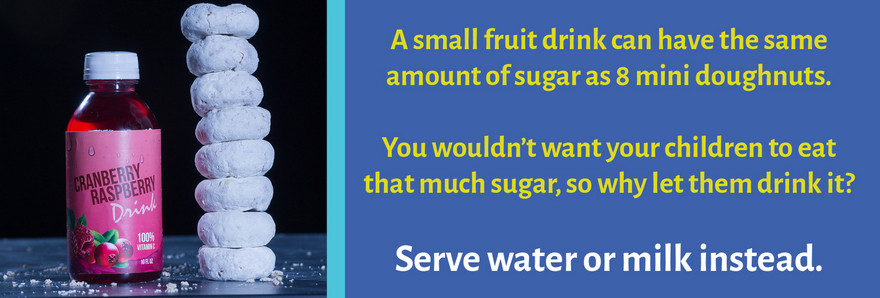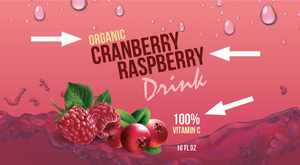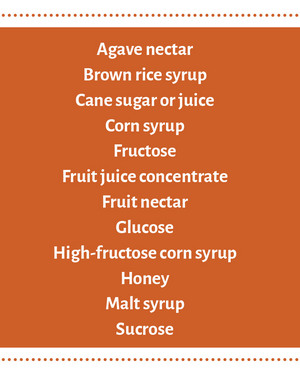Healthy Drinks for Preschool-Age Children
Little kids need healthy drinks like water and milk to build strong bones and bodies
Visit other Play Every Day sections:
Overview
Little kids need healthy drinks. Water and milk build strong bones and bodies.
What they often have instead are sugary drinks. Sugary drinks are the No. 1 source of added sugar in their diets. In 2019, four leading health organizations worked together to share a new report called "Healthy Drinks, Healthy Kids."
All four organizations agreed: Sugary drinks are not recommended for children ages 5 and younger.
Why healthy drinks matter
What you do today matters tomorrow.
You might not be thinking about preventing chronic diseases during preschool.
But the healthy drinks you serve your children now plus daily physical activity can improve their chances of preventing diseases like type 2 diabetes, heart disease and many types of cancers years from now. Choosing healthy drinks and being active while growing up can prevent diseases that last a lifetime.
That’s a great investment.

Serve healthy drinks
What's a healthy drink?
- Birth to 1 year: Choose breast milk or iron-fortified formula only.
- 1–2 years old: Serve water and pasteurized whole white milk.
- 2–6 years old: Serve water and pasteurized, fat-free (skim or nonfat) white milk, or low-fat (1%) white milk.
Limit 100% fruit juice
100% fruit juice contains natural sugar — not added sugar. But even natural sugars should be limited. 100% fruit juice has vitamins, but it lacks the fiber of whole fruit that can help kids feel full. Eating whole fruit instead of drinking fruit juice is the best way for kids to get the recommended daily servings of fruits.
The American Academy of Pediatrics recommends the following limits for 100% fruit juice:
- Babies younger than 1 years old: No 100% fruit juice
- 1–3 years old: Less than ½ cup (4 ounces) daily
- 4–6 years old: Less than ¾ cup (6 ounces) daily1

Hidden sugar
Many drinks have added sugar
Some children start having sugary drinks at an early age — most commonly fruit drinks and powdered drinks. The labels on these drinks can make them look healthier than they really are.
One small drink can hide a lot
For the best health, the U.S. Dietary Guidelines for Americans recommend children younger than 2 have foods and drinks without any added sugar. Limit the amount of added sugar older children consume to less than 10 percent of total daily calories.
For example, a 4-year-old should have no more than about 8 teaspoons of added sugar a day. Even one small fruit drink can be packed with more sugar than that.
Look for, limit hidden sugars
Added sugars can be tricky to spot because they go by many different names. They’re called high fructose corn syrup, honey, glucose, sucrose and other names.
Read the label.
Don't let labels fool you
Drinks can be loaded with added sugar, even with these words on the label:
- Fruits (like cranberry or raspberry) as part of the name
- Organic
- 100% vitamin C
A drink can have a fruit in its name and NOT be made with any fruit juice. Some fruit drinks can have a small amount of fruit juice but be loaded with large amounts of added sugar.
Both organic and non-organic drinks can have the same high amounts of added sugar and lead to the same health problems in children.
Check the ingredients. If sugar or any other sweetener is listed in the first three ingredients, your drink is likely loaded with sugar.
